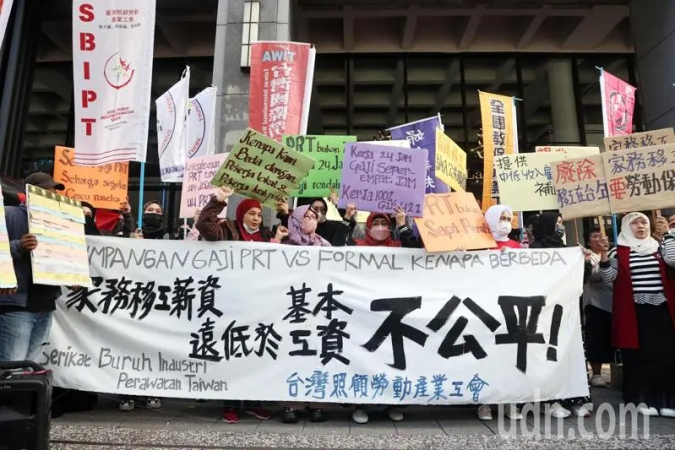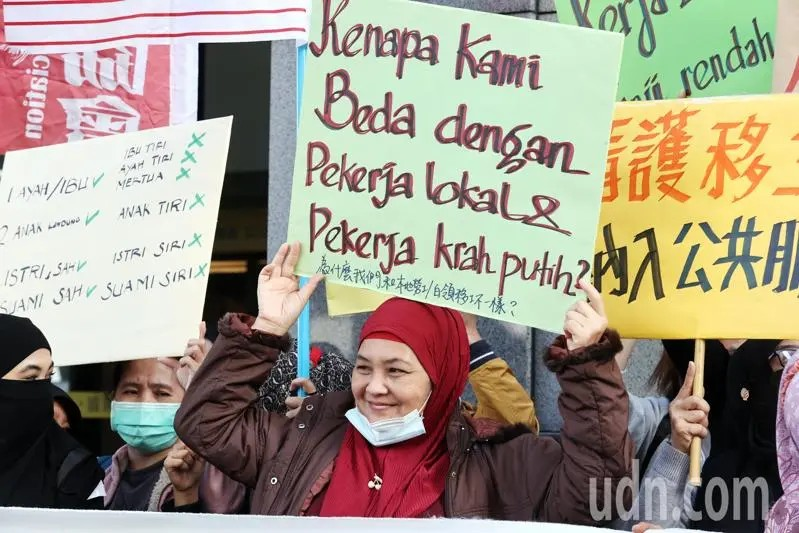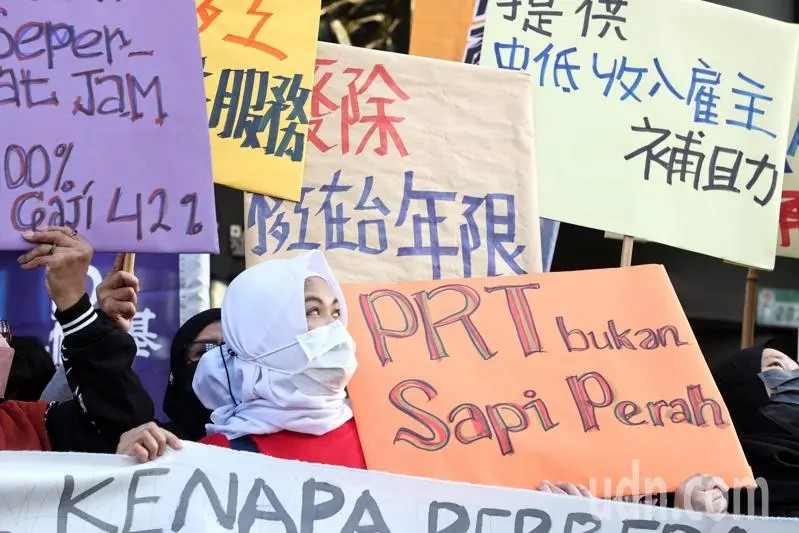
“Migrant workers should enjoy Taiwan's minimum wage and labor law protections!” On November 24, SBIPT and several migrant worker organizations, alongside around 50 protesters, gathered in front of the Ministry of Labor to demand better treatment for migrant workers. Their calls included stopping the purchase of rest days, providing adequate privacy, and simplifying the employer transfer process. Migrant worker Arrey expressed frustration, citing numerous instances of being forced to perform duties outside her contract and being frequently denied rest days. She hopes the new Minister of Labor, Hsu Shen-hsing, will address these issues.
Seven Key Demands from Migrant Workers
Fajar, chairperson of SBIPT, criticized the exclusion of domestic caregivers from Taiwan's minimum wage regulations. He pointed out that while Taiwan's minimum wage is set to rise to NT$28,950 in 2025, foreign caregivers still earn only NT$20,000 per month, a mere 70% of the minimum wage. This places them under severe financial pressure, making it difficult to afford adequate food, housing, and support for their families back home. Additionally, a lack of privacy and rest days leaves them mentally and physically exhausted.
“This wage disparity forces domestic caregiving jobs to become increasingly female-dominated, with women migrant workers being pushed into low-paying industries,” Fajar remarked. He called on Minister Hsu to raise caregiver wages to the minimum monthly salary, extend labor law protections to domestic caregivers, ensure national holidays for them, provide private living spaces, remove the 14-year work limit, and simplify employer transfer processes to prevent exploitation by intermediaries. He also advocated for subsidies to low-income employers, enabling them to pay migrant workers fair wages.

Exploitation by Agencies and Lack of Rest
Arrey urged the Taiwan government and employers to respect the labor rights of migrant workers. She recounted being forced to perform non-contractual duties, such as working on a farm instead of caregiving for an elderly woman, under threats of deportation if she refused. Employers often denied her rest days, exacerbating the physical and mental strain of caregiving work. She hopes for legal provisions to guarantee migrant workers sufficient rest time.
Suhartini of GANAS criticized the lack of rest, labor exploitation, severe discrimination, lack of wage transparency, and unlimited working hours, which have driven many domestic caregivers to overstay their visas illegally, complicating the situation further. Meanwhile, Balderama of the National Domestic Workers' Union accused agencies of charging migrant workers exorbitant placement fees, burdening them with significant debt before even starting work, leading to a vicious cycle of poverty, vulnerability, and escape.

Recognizing the Value of Care Work
“There are over 220,000 foreign caregivers in Taiwan without labor protections!” emphasized Liang Li-fang of The Awakening Foundation. She pointed out that the low wages in caregiving reflect society’s long-standing devaluation of women’s labor. This wage inequality, she argued, constitutes gender discrimination. Liang urged the Ministry of Labor to increase wages for migrant caregivers, consider including them under the Labor Standards Act, or enact a dedicated law to ensure fair treatment and recognize the value of caregiving work.
[Awakening News Networks / Reporter Lyu Xiang-he ] 2024/11/24 14:53
[Photo from UDN Qiu De-xiang] 2024-11-24 12:21
